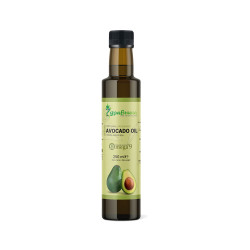Whether as a dip, a dressing, or as an ingredient in numerous vegan and vegetarian recipes, avocados have their place. However, it should be known that growing them threatens the climate. The good news is that there is a local alternative in many places around the world, including in Bulgaria.
Although it looks like a vegetable, it belongs more to the family of raspberries, blackberries, blueberries, goji berries, etc. The avocado grows on a perennial tree that belongs to the Laurel family. It is more of a fruit, and in its wild form, it is found in South America. The largest producers are Mexico, the Dominican Republic, Colombia, Peru, and Indonesia. New areas have been formed in Andalusia, Spain, and Morocco recently. The "Fuerte" variety with a green, almost smooth skin, and "Hass" - with a dark green, thin skin are mainly offered in Europe. Currently, interest in avocados is very high: 4 times more is imported than 10 years ago.
It is liked by everyone, but it is mostly preferred by those who avoid animal foods, as it is very useful, is a concentrated food, and is a healthy alternative to butter and cheese, for example.
The healthy delicacy
There is a reason why avocados are so popular: they are rich in folic acid, vitamin K, vitamin D, and B6, as well as potassium, calcium, and unsaturated fatty acids. Despite the high percentage of fat, they are very healthy. 100 g of avocado contains only 138 calories. Only 3/4 of the calories come from fatty acids, of which unsaturated fatty acids such as omega-3 make up the majority.
Avocado is very easily digested by the stomach. It supports cell growth, has a beneficial effect on cholesterol, and reduces the risk of cardiovascular diseases.
The fats in it have an anti-inflammatory effect, it is also recommended for arthritis and many other inflammatory diseases. The carotenoids it contains, especially the fat-soluble plant pigment lutein, are very beneficial for the retina.
Avocado is also a recommended food for pregnant women due to its high folic acid content of 20 micrograms per 100 g. The high content of various vitamins is good for the development of the embryo and prevents miscarriages.




